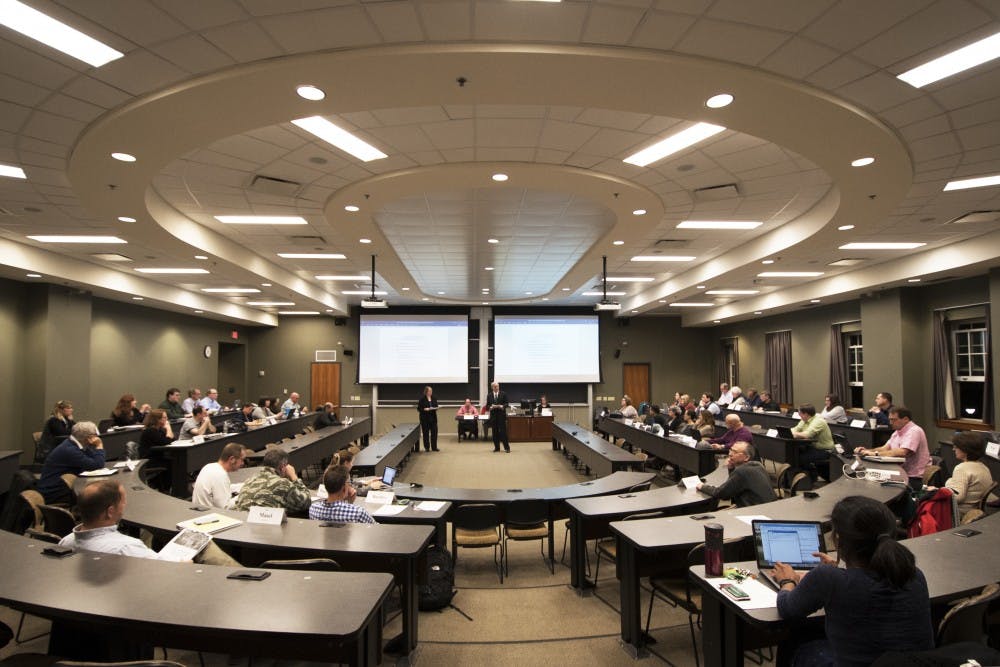Two resolutions dealing with the Faculty Handbook were passed Monday during Faculty Senate’s meeting.
One resolution will change the process of appeals for complaints involving sexual misconduct. Those who file a complaint can appeal the action of the provost to the president within 21 days of the provost taking action.
“What this does, in essence, if the recommendation is for loss of tenure, that goes through a difference process,” Professional Relations Committee Chair Sarah Wyatt said. “It is appealable at the end of that process.”
Initiations for loss of tenure or dismissal proceedings are referred back to the department or school the complaint falls under.
A second resolution that revises faculty classifications was also discussed. That resolution is more of a renaming, Wyatt said. Two senators said that they spoke to professors in their colleges who opposed the name changes. They were in the minority, as the resolution passed.
“I’ve gotten a lot of feedback on these,” Wyatt said. “Believe it or not, a lot of it is positive.”
The revised policy would define an assistant, associate and research professor as someone who is supported only by external funds. Those positions have no faculty rank, faculty status or teaching responsibilities. Those ranks are also not covered by the Faculty Handbook.
The meeting began with a presentation by Ohio University President •Duane Nellis. During that time, Nellis took questions from faculty members.
Bernhard Debatin, a senator from the Scripps College of Communication, asked about the Office of Diversity and Inclusion situation in which a letter was sent by 70 Faculty Senate members who voiced concern over how the office is led.
There is concern over a lack of communication and transparency within the office. Debatin asked where the office is going and if Nellis had an update.
Nellis said that he would not discuss a particular case going on within the Office of Diversity and Inclusion because there is still one more level of appeals involved. There have been some changes under Vice President for Diversity and Inclusion Gigi Secuban.
Nellis said that those changes have not been easy, but will allow for the office to strengthen in coming years.
“I think (Secuban) is reaching out and trying to hear other people’s perspectives,” Nellis said. “It’s really on all of us, I think, to work with her.”
Debatin again mentioned the lack of transparency after Nellis addressed Debatin’s concerns. He criticized the response of inquiries about the office, and said that not being transparent creates a rift in the university.
“If a Q gets completely ignored and instead we hear this corporate talk … I think that makes people pretty frustrated,” Debatin said.






